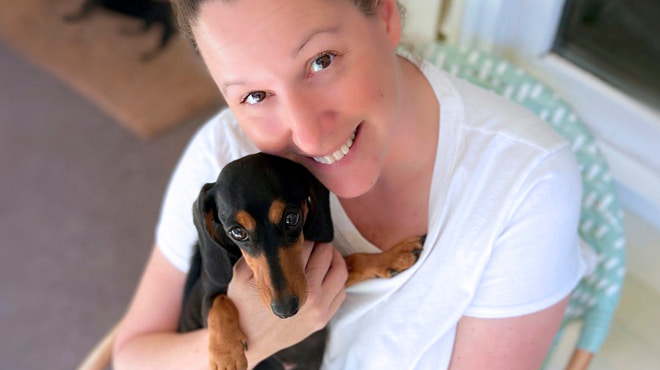Recent Posts
11 tips for coping with a cancer diagnosis

Learning that you have cancer is a difficult experience. After your cancer diagnosis, you may feel anxious, afraid, angry or overwhelmed, and wonder how you can cope during the days ahead. This is normal and expected. Your diagnosis will likely be the focus of all your attention in the days and months to follow, and it will affect your daily routines and personal relationships.
While each person's situation is different, there are common ways to approach a cancer diagnosis that can lower anxiety and improve your resilience and coping skills.
Here are 11 suggestions:
1. Get the facts about your cancer diagnosis.
Information is power and no more so than after a cancer diagnosis. Gather as much basic, useful information about your cancer diagnosis as you need to make decisions about your care. Write down your questions and concerns for your health care team and bring the list with you to all appointments.
Consider asking:
- What kind of cancer do I have?
- Where is the cancer?
- Has it spread?
- Can my cancer be treated?
- What is the chance that my cancer can be cured?
- What other tests or procedures do I need?
- What are my treatment options?
- How will the treatment benefit me?
- What can I expect during treatment?
- What are the side effects of the treatment?
- When should I call the doctor or my oncology provider?
- What can I do to prevent my cancer from recurring?
- How likely are my children or other family members to get cancer?
Consider bringing a family member or friend with you to your first few appointments to help you remember what you hear. Ask that person to act as a scribe and write down the answers.
You also might want to consider how much you want to know about your cancer. Some people want all the facts and details, so they can be very involved in the decision-making process. Others prefer to learn the basics and leave details and decisions to their health care providers. Think about which approach works best for you. Let your health care team know what you'd prefer.
2. Keep the lines of communication open.
Maintain honest, two-way communication with your loved ones, health care team and others after your cancer diagnosis. You may feel particularly isolated if people try to protect you from bad news or if you try to put up a strong front. If you and others express emotions honestly, you can all gain strength from each other.
3. Anticipate possible physical changes.
Now — after your cancer diagnosis and before you begin treatment — is the best time to plan for changes. Prepare yourself now so that you'll be better able to cope later.
Ask your health care team what changes you should anticipate. If drugs will cause hair loss, gathering advice from image experts about makeup, wigs and head coverings may help you feel more comfortable and attractive. Insurance may help pay for wigs, prostheses and other adaptive devices.
Members of cancer support groups may be particularly helpful in this area and can provide tips that have helped them and others.
Also consider how treatment will affect your daily activities. Ask whether you can expect to continue your normal routine. You may need to spend time in the hospital or have frequent medical appointments. Arrange for a leave of absence from your normal duties if necessary.
4. Let friends and family help you.
Often friends and family are happy to run errands, provide transportation, prepare meals and help you with household chores. Learn to accept their help. Accepting help gives those who care about you a sense of contributing during a difficult time.
Also encourage your family to accept help if it's needed. A cancer diagnosis affects the entire family and adds stress, especially to the primary caregivers. Accepting help with meals or chores from neighbors or friends can go a long way in preventing caregiver burnout.
5. Maintain a healthy lifestyle.
Maintaining a healthy lifestyle can improve your energy level. Choose a healthy diet consisting of a variety of foods and get adequate rest to help you manage the stress and fatigue of the cancer and its treatment.
Exercise and participating in enjoyable activities also may help. Research suggests that people who maintain some physical exercise during treatment not only cope better, but also may live longer.
6. Review your goals and priorities.
Determine what's most important in your life. Find time for the activities that are valuable to you and give you the most meaning.
If needed, try to find a new openness and honesty with loved ones. Share your thoughts and feelings with them. Cancer affects all your relationships. Candid communication can help lower anxiety and fear that cancer can cause.
7. Try to maintain your normal lifestyle.
Maintain your normal lifestyle, but be open to modifying it as necessary. Take one day at a time. It's easy to overlook this simple strategy during stressful times. When the future is uncertain, organizing and planning may suddenly seem overwhelming.
8. Consider how your diagnosis will affect your finances.
Many unexpected financial burdens can arise because of a cancer diagnosis. Your treatment may require time away from work or an extended time away from home. Consider the additional costs of medications, medical devices, traveling for treatment and parking fees at the hospital.
Many clinics and hospitals keep lists of resources to help you financially during and after your cancer treatment. Talk with your health care team about your options.
Questions to ask include:
- Will I have to take time away from work?
- Will my friends and family need to take time away from work to be with me?
- Will my insurance pay for these treatments?
- Will my insurance cover the cost of medications?
- How much will my out-of-pocket costs be?
- If insurance won't pay for my treatment, are there assistance programs that can help?
- Do I qualify for disability benefits?
9. Talk to other people with cancer.
Sometimes it will feel as if people who haven't experienced a cancer diagnosis can't fully understand how you're feeling. For many people, it is helpful to talk with others who have been in the same situation. Other cancer survivors can share their experiences and give insight into what you can expect during treatment.
You may have a friend or family member who has had cancer or you can connect with other cancer survivors through support groups. Ask your health care team about support groups in your area or contact the American Cancer Society. Online message boards also bring cancer survivors together virtually. A good option is the American Cancer Society's Cancer Survivors Network or Mayo Clinic Connect.
10. Fight stigmas.
Unfortunately, some old stigmas associated with cancer still exist. Your friends may worry that your cancer is contagious. Co-workers may doubt you're healthy enough to do your job. Friends and acquaintances may withdraw for fear of saying the wrong thing, so ignore you or the situation completely. Many people will have questions and concerns.
Determine how you'll deal with others' behaviors toward you. Most of the time, other people will take their cues from you. Remind friends that even if cancer has been a frightening part of your life, it shouldn't make them afraid to be around you.
11. Develop your own coping strategy
Just as each person's cancer treatment is individualized, so is the coping strategy.
Ideas to try include:
- Practice relaxation techniques.
- Share your feelings honestly with family, friends, a spiritual adviser or a counselor.
- Keep a journal to help organize your thoughts.
- When faced with a difficult decision, list the pros and cons for each choice.
- Find a source of spiritual support.
- Set aside time to be alone.
- Remain involved with work and leisure activities as much as you can.
What comforted you through rough times before your cancer diagnosis is likely to help ease your worries now, whether that's a close friend, religious leader or a favorite activity that recharges you. Turn to these comforts now, but also be open to trying new coping strategies.
Sarah Lewis is a social worker and cancer guide in Eau Claire, Wisconsin.





